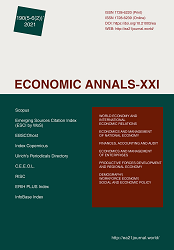Modes of Islamic financing and aggregate economic output: evidence from Islamic banking industry of Pakistan
Modes of Islamic financing and aggregate economic output: evidence from Islamic banking industry of Pakistan
Author(s): Adil Saleem, Judit Sági, Judit BárcziSubject(s): National Economy, Islam studies, Financial Markets
Published by: Institute of Society Transformation
Keywords: Profit and Loss Sharing; Industrial Production; Islamic Finance; ARDL; Pakistan;
Summary/Abstract: With the evolution of Islamic banking, the economic impact of Islamic finance has been studied by many authors. Islamic banks significantly differ from conventional banks in terms of underlying contracts. The asset side of Islamic banks is composed of different modes of financing, which can be categorized at participatory and non-participatory modes of financing. This study aims to examine the relationship of modes of Islamic financing in connection to the real economic output of Pakistan. Using quarterly data from 2005 to 2019, we use autoregressive distributive lag (ARDL) model to analyze the impact of modes of Islamic financing and industrial output. Our findings reveal that non-participatory modes of Islamic financing play a significant role in deriving a healthy aggregate economic output. Therefore, Industrial production found to have a significant positive long run relationship with non-participatory Islamic financing. However, financing modes based on partnership does not have significant impact on total industrial production. The results also show that poor asset quality hinders the production process in the long run and decreases the economic outcome.
Journal: Економічний часопис - ХХІ
- Issue Year: 190/2021
- Issue No: 05+06 (1)
- Page Range: 109-118
- Page Count: 10
- Language: English

